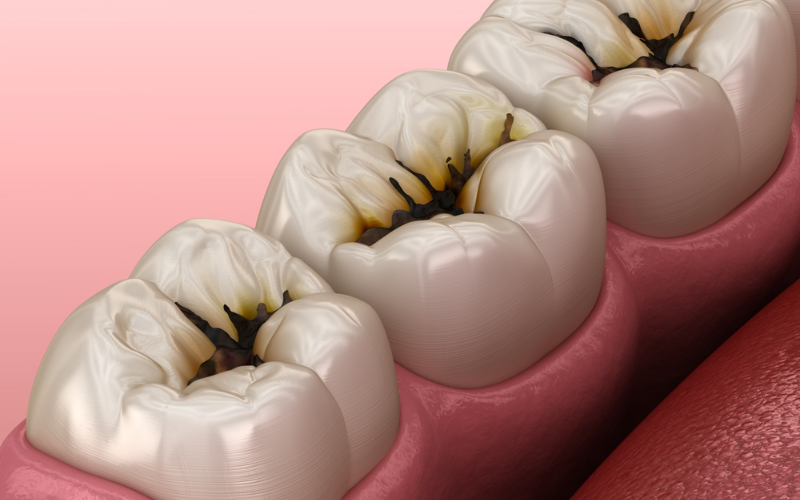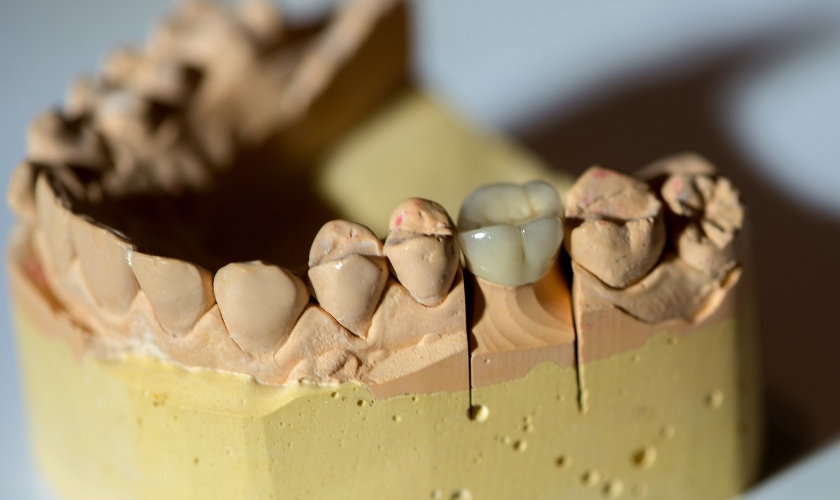New Patients Welcome!

Good dental hygiene is reflected in a healthy smile, however many people harm their teeth on a daily basis without even realizing it. Bad teeth and tooth rot can cause discomfort, costly dental procedures, and even major health problems. It is possible to avoid these issues and keep a healthy & radiant smile by being aware of the underlying causes of tooth decay.
Reasons Your Teeth Are Suffering From Tooth Decay
1. Bad Dental Hygiene Practices
Tooth decay results from plaque and bacteria growth caused by irregular brushing and flossing. Tooth loss, gum disease, and cavities can result from poor oral hygiene.
What To Do?
- Use fluoride toothpaste to brush twice a day.
- Floss once a day to get rid of plaque and food particles.
- Schedule routine cleanings and examinations with dentist.
2. A Diet Heavy In Sugar & Acid
Acidic and sugary foods encourage bad oral bacteria that erode tooth enamel and cause cavities. Candy, soda, fruit juices, and processed snacks are common causes.
What To Do?
- Rinse your mouth after eating sweets and limit your consumption of sugar.
- To naturally clean teeth, eat fruits and vegetables high in fiber.
- Drink water rather than sugary drinks.
3. Insufficient Protection from Fluoride
Fluoride helps stop tooth decay and strengthens enamel. Too little fluoride makes teeth more prone to damage and cavities.
What To Do?
- Use mouthwash and toothpaste that contain fluoride.
- If fluoridated water is available, drink it.
- Inquire about professional fluoride treatments from a dentist in Seattle.
4. Tobacco and Smoking Usage
Because tobacco discolors teeth, increases plaque accumulation, and weakens gums, it raises the risk of tooth decay and loss.
What To Do?
- Quit smoking or using tobacco products.
- Seek professional help for smoking cessation if needed.
- Maintain strict oral hygiene to counteract tobacco effects.
5. Dry Mouth & Low Saliva Production
Saliva helps wash away food particles and neutralize acids. A dry mouth increases the risk of cavities and bad breath.
What To Do?
- Stay hydrated and drink plenty of water.
- Chew sugar-free gum to stimulate saliva production.
- Avoid alcohol-based mouthwashes that can dry out your mouth.
6. Ignoring Early Signs of Dental Issues
According to the World Health Organization (WHO), nearly 2.3 billion people worldwide suffer from tooth decay in permanent teeth, making it one of the most prevalent health issues globally.
Many people ignore tooth sensitivity, gum bleeding, or mild pain, allowing minor issues to develop into serious dental problems.
What To Do?
- Don’t ignore discomfort—see a dentist at the first sign of trouble.
- Treat cavities and gum issues early to prevent major procedures.
- Follow through with recommended dental treatments.
7. Genetics & Underlying Health Conditions
Genetics play a role in tooth strength, gum health, and susceptibility to cavities. Additionally, conditions like diabetes and acid reflux can impact oral health.
What To Do?
- If you have a family history of dental problems, be extra vigilant with oral care.
- Manage health conditions that may affect your teeth.
- Inform the dentist of any medical conditions during visits.
So, preventing tooth decay and maintaining healthy teeth starts with good habits. Brushing, flossing, a balanced diet, and regular dental check-ups can go a long way in preserving your smile. Don’t wait for pain to take action—Book a dental appointment and prioritize your oral health today.





